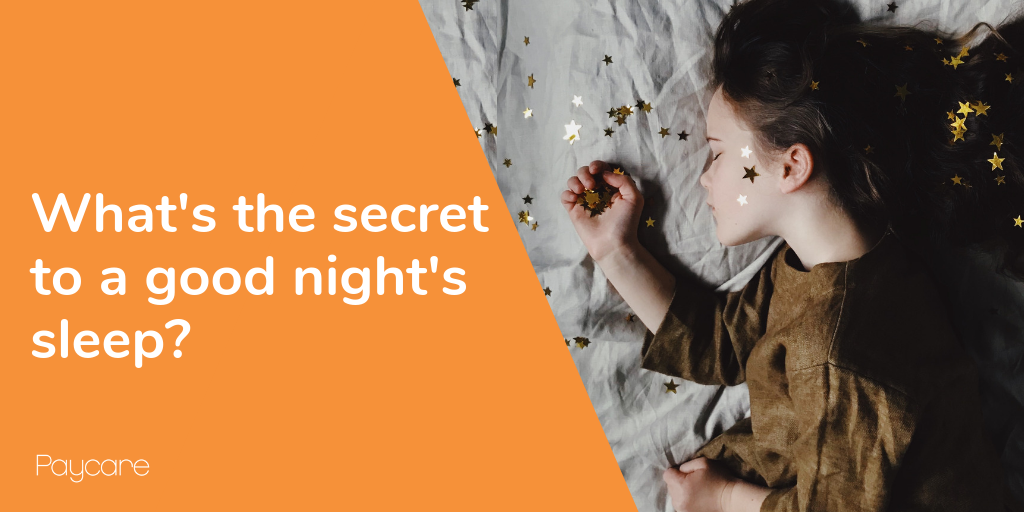Many of us can find ourselves victim to the bad effects of a poor night’s sleep, from fatigue and lack of focus, to short temper and confusion. But what else is at stake as a result of poor sleep quality?
According to the NHS, almost a third of us suffers from poor sleep, with stress, computers and long working hours often to blame. Sometimes a bad night’s sleep can be a one off, or it can happen on a regular basis, knocking us for six for the next day.
But how much do we need to function at our best? It’s recommended that certain age groups get:
• Newborns (0-3 months) | 14 – 17 hours
• Infants (4-11 months) | 12-15 hours
• Toddlers (1-2 years) | 11-14 hours
• Preschoolers (3-5 years) | 10-13 hours
• School Aged (6-13 years) | 9-11 hours
• Teenagers (14-17 years) | 8-10 hours
• Adults (18-64 years) | 7-9 hours
• Adults (65+ years) | 7-8 hours
Sleep is essential for a long, healthy life, and it can help with anything from mental wellbeing and weight management, to immunity to illnesses, increased fertility and much more. While one poor night’s sleep might mean we’re a bit cranky the next day, it won’t impact our overall health and wellbeing. However, if we go prolonged periods without enough sleep, or without sleep that’s unbroken and high quality, our wellbeing can be impacted in many ways, from brain fog, confusion, and decreased levels of concentration, to focus, susceptibility to illnesses and difficulty making decisions.
This, in turn, can impact our overall mood – making us feel down and finding it hard to maintain relationships – as well as reducing levels of productivity.
Lack of sleep is thought to cost the UK economy £40.3 billion every year due to loss of productivity in the workplace, so it’s certainly one of the big areas where employees and employers can make improvements. So how can we get a better night’s sleep?
Reduce Blue Light
Some studies suggest a link between exposure to light at night, such as working the night shift, to some types of cancer, diabetes, heart disease, and obesity. With the growth in digital gadgets used at all times of the day and emitting potentially dangerous blue light, there are some simple tricks we can use to enable our bodies to get back into its natural rhythm. Avoid looking at bright screens two to three hours before bed, switch your bedside lamp for a dim, red bulb, and look at installing special apps that filter the blue/green wavelength at night.
Explore Some Sleep Apps
Technology has brought about many benefits that can assist us in our daily lives, and many have benefitted from using sleep-aiding apps. There are many varieties available, but some of these work by tracking sleep throughout the night, monitoring for any movement or patterns, and finding the best time (within the timeframe specified by the user) to wake the body up as naturally as possible.
Schedule Your Sleep
If you have a solid routine but find that you wake up throughout the night, it might be an idea to hit the sack earlier than usual to make up for lost sleep. And, if you’ve not had enough sleep for a prolonged period, you can easily catch up. Try small steps, like adding an extra hour or two to your sleep, or by going to bed tired and only waking up when your body does so naturally (read, no alarms!)
Meditate Your Mind, Body & Soul
Many people practice meditation to help them fall asleep faster, and it can be one of the most effective things to try if you’re a late-night thinker and find yourself processing all of the day’s events, worries, and to-do lists. It can clear out all the noise in your head and leave you more freely able to drift off. The other great thing about meditation is that it’s free, doesn’t take too long to do, and can enhance many other areas of our lives (such as focus and mood).
Exercise Regularly
Exercising has oodles of benefits, one of them being how it can make our bodies feel tired which helps us to sleep better, more deeply, and subsequently, undisrupted. However, if you’re thinking about upping your exercise, don’t do it too late at night, as it can produce stimulatory effects and hormones that make us feel more alert and aware.
*****
While we can’t always benefit from a restful night’s sleep (because of, for example, children waking us up), these are just some of the steps you can take to ensure you are your best self when you’re awake.
If you have major concerns about your sleep, we’d recommend speaking to a specialist consultant or making an appointment with your GP, as there are a few different variations of sleep issues, such as insomnia or sleep apnea.
Don’t forget that as a Paycare Policyholder, you have access to the GP 24/7 app and support online via your My Paycare account, where you can book an appointment to speak directly to a qualified and practicing GP at any time of the day or night, as well as cashback for specialist consultations and tests*. You can find out more information here.
*Depending on your plan and level
Sources
1 | https://sleepfoundation.org/press-release/national-sleep-foundation-recommends-new-sleep-times
2 | https://smallbusiness.co.uk/lack-of-sleep-work-costs-uk-2543203/
3 | https://www.health.harvard.edu/staying-healthy/blue-light-has-a-dark-side

